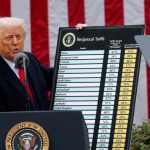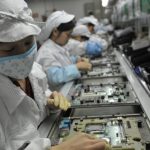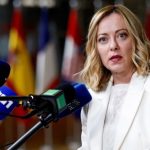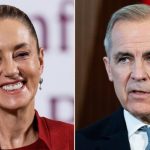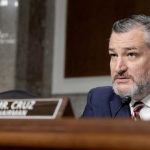Unlock the US Election Countdown newsletter for free
The stories that matter on money and politics in the race for the White House
Donald Trump had “absolutely no intent to defraud” US voters in the 2016 election by surreptitiously paying off a porn actor who alleged an extramarital affair, his defence team argued as closing statements began in the first criminal trial against a former president.
“President Trump . . . did not commit any crimes and the district attorney has not met their burden of proof, period,” Todd Blanche told jurors in the Manhattan courtroom on Tuesday. He added that the “hush money” case was “about documents” and “not about an encounter with Stormy Daniels 18 years ago”, which Trump has consistently denied.
The remarks came as the trial entered its final stretch, which has heard from 22 witnesses over the course of five weeks, including Daniels, whose alleged encounter with Trump, 77, is at the heart of the case.
The court has also heard testimony from former Trump aide Hope Hicks and from his former mentee, lawyer and fixer Michael Cohen, who has since become one of the former president’s most vocal critics.
Cohen paid Daniels $130,000 of his own money to buy her silence in the final days of Trump’s first presidential campaign. Trump is charged with falsely recording reimbursements to Cohen as legal expenses.
The prosecution has claimed the scheme was deliberately designed to prevent damaging allegations against Trump from being made public in the run-up to the 2016 election, when his campaign was already reeling from the release of the Access Hollywood tape, in which the television personality was heard bragging about grabbing women’s genitals.
The payments therefore amounted to an attempt to “corrupt” the vote, the Manhattan district attorney’s office has maintained. Its final arguments will begin later on Tuesday, and are expected to last at least four hours.
Trump’s defence team has long argued that the former president “had nothing to do with the invoice, with the cheque being generated, or with the entry on the ledger”. On Tuesday, Blanche reiterated that Trump “was very busy, he was running the country”, when the cheques in question were allegedly signed in 2017, and was not examining them in detail.
A verdict could then come as soon as Wednesday, when the seven men and five women who make up the New York jury are likely to be handed the case for deliberations following closing arguments.
If found guilty, Trump is unlikely to be jailed, but would probably face financial penalties and, if he wins November’s election, would become the first occupant of the White House to be a convicted criminal. He is also likely to appeal against any conviction. The trial — which comes in one of four criminal cases he is facing — has so far done little to dent the presumptive Republican nominee’s standing in the presidential polls.
While the jury was hearing closing arguments, President Joe Biden’s campaign held a press conference outside the courthouse, featuring Hollywood actor and native New Yorker Robert De Niro. “Donald Trump wants to destroy not only this city but the country, and eventually he could destroy the world . . . he doesn’t belong in my city,” he said. “I don’t know where he belongs, but he certainly doesn’t belong here.”
The outcome of the case hinges in part on whether jurors believe Cohen, whose testimony directly linked Trump to the bookkeeping of the payments. Last week, the defence spent days seeking to discredit the former fixer — who has previously been convicted of perjury — as a serial liar hell-bent on seeing his erstwhile boss behind bars.
“You cannot convict President Trump of any crime beyond a reasonable doubt on the words of Michael Cohen,” Blanche told the jury, pointing out that others privy to conversations with Cohen, such as former Trump Organization accountant Allen Weisselberg, were not called to give their accounts of the facts. Weisselberg is serving a jail sentence for perjury and has previously been convicted of tax fraud in New York.
Trump, who was joined in court by his sons Eric and Don Jr, and by his daughter Tiffany, once again decried the case as “election interference” in his morning remarks. “They should have brought this case seven years ago, not in the middle of a presidential election,” he said.
Additional reporting by Lauren Fedor
Read the full article here


